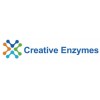Cat No.
NATE-0807
Description
Alkaline phosphatase (ALP, ALKP, ALPase, Alk Phos) (EC 3.1.3.1) is a hydrolase enzyme responsible for removing phosphate groups from many types of molecules, including nucleotides, proteins, and alkaloids. The process of removing the phosphate group is called dephosphorylation. As the name suggests, alkaline phosphatases are most effective in an alkaline environment. It is sometimes used synonymously as basic phosphatase. Shrimp alkaline phosphatase is a heat labile, hydrolase enzyme. It is a high specific activity alkaline phosphatase purified from a recombinant source. There are two preferred sites for enzyme activity: 5' protruding, recessive and blunt 5'-termini. The enzyme is irreversibly heat inactivated at 65°C for 15 minutes.
Abbr
ALP, Recombinant (Shrimp)
Alias
ALP; ALKP
Source
Proprietary host
Species
Shrimp
Form
Solution in 50% glycerol containing 25 mM Tris-HCl, pH 7.5, 1 mM MgCl2
Enzyme Commission Number
EC 3.1.3.1
CAS No.
9001-78-9
Concentration
>1,000 DEA units/ml
Unit Definition
One unit will hydrolyze 1 μmole of 4-nitrophenyl phosphate per minute at pH 9.8 at 37 °C.
Applications
Alkaline phosphatase was used to examine its role in the prevention of high-fat-diet-induced metabolic syndrome in mice. It also may be used in pasteurization process for milks used in dairy products.
Synonyms
Alkaline phosphatase; ALP; ALKP; ALPase; Alk Phos; EC 3.1.3.1; Alkaline phosphomonoesterase; Glycerophosphatase; Phosphomonoesterase





